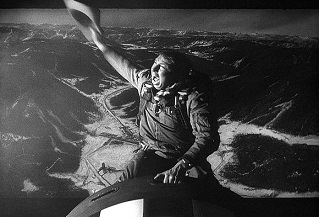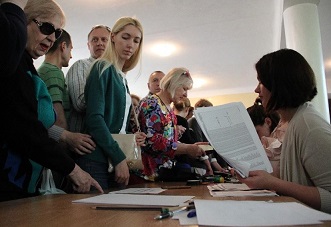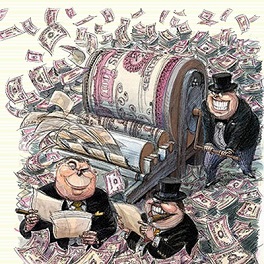Doctor Strangelove Returns as General Breedlove
«Mein Führer! Mein President!»
In Stanley Kubrick’s 1954 madcap dark comedy «Dr. Strangelove», the clearly demented main character is a former scientist for Adolf Hitler who ends up as a military adviser to a fictional American president involved in a nuclear standoff with the Soviet Union. The Strangelove character was not merely a figment of Kubrick’s otherwise brilliant imagination. Dr. Strangelove, who urges a massive nuclear strike on the Soviet Union, is based on two immigrant Cold Warriors from Europe possessing doctoral degrees: Dr. Henry Kissinger, the Machiavellian National Security Advisor to President Richard Nixon and Russian Affairs Advisor to President Barack Obama, and Dr. Edward Teller, the father of America’s hydrogen bomb. In real life, Kissinger, a German and a Jew, and Teller, a Hungarian Jew, brought their anti-Russian European political «baggage» to bear on America’s policy toward Moscow during the height of the Cold War. Kissinger and Teller, like the revenge-seeking Nazi, Strangelove, wanted Russia punished for personal political reasons.
Today, NATO’s Supreme Allied Commander for Europe and chief of the U.S. European Command, four-star Air Force General Philip Breedlove, is attempting to reprise the movie role of Dr. Strangelove, his almost namesake. Just as Dr. Strangelove cited a «mine shaft» gap with the Soviets arising from a lack of underground facilities for the protection of American men and women who would repopulate the world through proper «breeding techniques», Breedlove has stated that NATO must match Russian troop deployments in western Russia with a commensurate buildup of NATO troops in its east.
Breedlove has stated that NATO’s military presence in Eastern Europe will continue with air, land and sea deployments until at least December 31 and possibly beyond. Sounding a lot like Dr. Strangelove in his analysis of the perceived Russian «threat» to Ukraine and NATO, Breedlove pulled out the best taling points from the RAND Corporation. Breedlove in a news conference held this month with Canada’s top military commander, Chief of the Defense Staff Tom Lawson. Breedlove said, «Based on the new paradigm that we see Russia has presented . . . we are all going to have to re-evaluate some of the decisions that we have made for structure, for positioning, for readiness, and . . . even more important in the short term, our force responsiveness will need to be re-evaluated.»



























